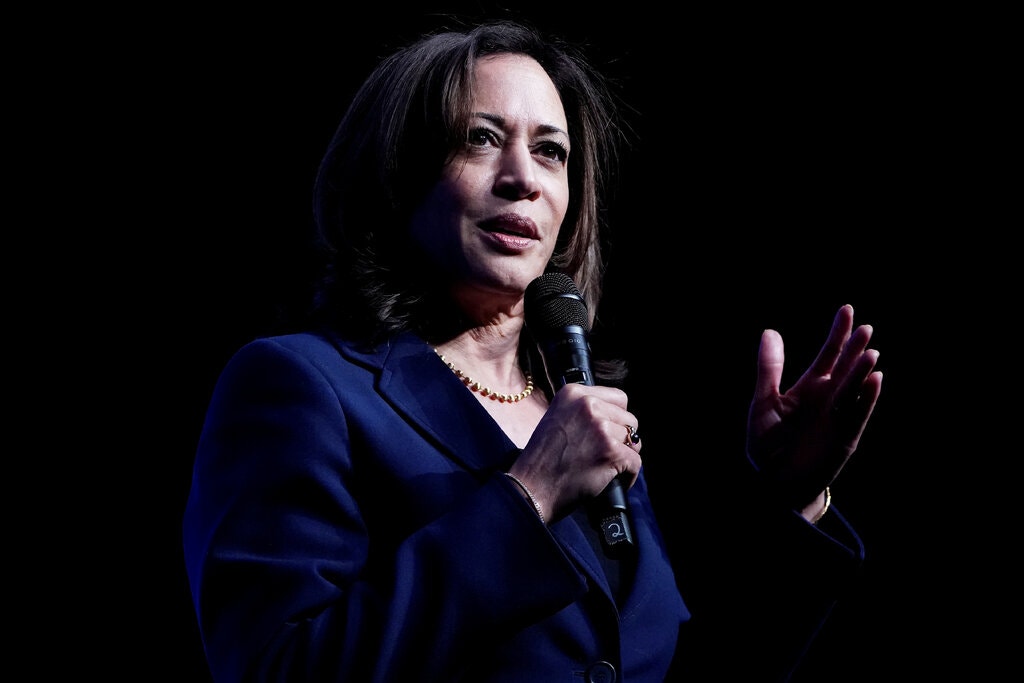Caroline Vincent, News Editor
@cvincentcourant
Democratic presidential candidate Joe Biden’s Aug. 11th announcement that Senator Kamala Harris will be his running mate in the 2020 election has reignited the conversation surrounding Hillary Clinton’s loss in the 2016 election. Does sexism still play a role in politics?
The short answer is yes. The long answer is also yes, but we are heading in a direction where the misogynistic fundamentals that the United States was founded on will one day be eliminated.
The United States was founded for men by men. Women were initially given no rights and put in a role designed to amplify the importance of men. Only in 1920 were women legally acknowledged as citizens with the 19th amendment. This past week was the 100th anniversary of the amendment, and women are more present in politics than ever. However, still, Congress is only 23.7% women, with 48 out of these 127 women being women of color.
To be frank, the lack of equality is unacceptable. In 2020, a time when the fourth wave of feminism is abundantly clear, why are men dominating a government system meant to represent the whole population? The reason is simple. Sexism. Women face gender bias every day, especially in politics. They are constantly scrutinized and looked down upon because of their gender.
It was apparent during Clinton’s campaign when the media cycle was filled with stories about her physical appearance, tone of voice, and lack of empathy.
In a 2016 interview with Time Magazine, Clinton said that women “face what is a pernicious double standard that is aided and abetted by the idea of perfectionism.” This notion of perfectionism has built a wall around women achieving and succeeding in traditional ‘male professions.’
Yale student Emma Knight, a field coordinator for State Senator Alex Kasser’s campaign for re-election, said, “qualities that are respected in men, such as passion, leadership, audacity, and confidence, are perceived negatively in women. Mistakes we forgive men for will ruin a woman’s entire career. A trailblazer is expected to be perfect, but we all know that perfection is impossible.”
The prospect of Harris being the first female vice president is proof that the wall is continuing to fall. Harris is the change that defines the 21st century, and her being vice president will only advance the movement to get more females involved in politics.
On June 26, Harris tweeted, “my advice for women who want to run for office: GO FOR IT.” This mantra is being heard loud and clear. In 2018, more women ran for office than ever before, proving that women’s voices must be amplified.
One woman who ran for office in 2018 was Senator Kasser. As a woman in politics — and the first woman to represent her district — Kasser has had her fair share of sexist encounters. Instead of being attributed for her hard work, she has had experiences with people dismissing her, saying that she only won her campaign because of a “blue wave” or a “pink wave.”
“Women work as hard or harder than men, but we don’t get the same amount of credit. And when we take strong positions or question a man publicly, we get ‘tone policed,’” said Kasser.
The leadership of women is key to advancing the United States; Kasser believes it is crucial to creating meaningful change and building a country where every person is respected, safe, and valued.
“One day, Kamala Harris may be our president, and thinking about that possibility makes me hopeful and excited for the future of our country,” Kasser said.
With Biden possibly being the oldest person ever elected to the White House, at 77 years old, Harris’s chance of becoming president is more real than ever. One Trump campaign staffer told the Washington Post that, “Joe Biden’s vice-presidential nominee will be his political ‘living will.’”
“It is super empowering to watch [Harris] fiercely defend her beliefs,” Knight said.
A strong message is being sent to Americans: the wall is coming down.




